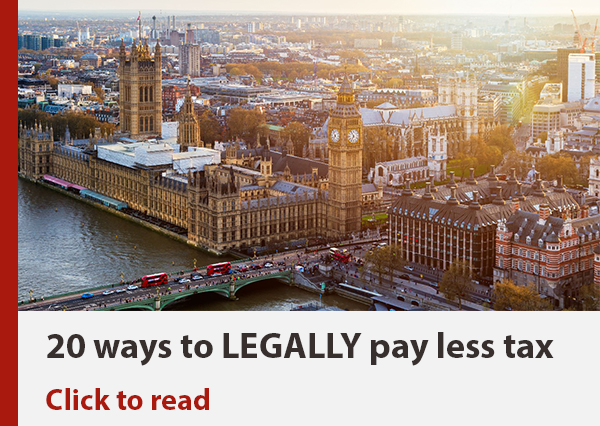2023 tax year deadline: four allowances to use or lose

Make use of these tax allowances before the start of the new tax year in April, or you will lose them forever.
The start of April marks the start of a new tax year, and that’s significant for everyone, not just the self-employed.
That’s because a host of annual allowances expire with the end of the tax year.
What’s more, tax changes mean some of these allowances will not be quite so generous in future.
As a result, if you want to make the most of those allowances, then time is running out to do so.
ISA allowance
One annual allowance that many of us are familiar with is the ISA allowance. This covers how much we can save each year within our various ISA accounts, and currently stands at £20,000.
That £20,000 can be split across different types of ISA ‒ you don’t have to save the entirety in a single Cash ISA, for example, but can instead divide the money across a handful of different types.
One particular type of ISA has its own annual allowance, within the overall ISA allowance. Savers can only put a maximum of £4,000 into a Lifetime ISA each year.
Lifetime ISAs are designed for those looking to save a deposit for a house, or to supplement their retirement savings.
Savers are rewarded by a 25% top up from the Government each year on the money saved, so a bonus £1,000 for each year.
If you want that top up then you’ll need to have the money in your Lifetime ISA by the end of the tax year.
If you have a Junior ISA for your children, then this is also subject to a separate annual allowance, which stands at £9,000 for the current tax year.
With ISAs it’s crucial to understand that your allowance can not be carried over to future years.
As a result, if any of that £20,000 allowance is not used, it is gone forever ‒ your future allowances are not topped up by the remainder.
Capital Gains Tax allowance
When you sell on an asset for a profit, such as shares or a second property, then you will need to pay Capital Gains Tax (CGT) on those profits.
The rate of tax you pay will depend on the asset being sold, as well as your Income Tax band.
Basic Rate taxpayers pay 10%, rising to 18% for property sales, while Higher Rate taxpayers pay 20%, rising to 28% for property sales.
However, there is an annual CGT allowance, which allows you to make a certain amount from capital gains without having to pay tax.
For the 2022/23 tax year, the CGT allowance stands at £12,300.
However, it is being dramatically reduced from April, and the new tax year, to just £6,000. It will then be slashed again to £3,000 for the 2024/25 tax year.
In other words, over the next couple of years, the CGT annual allowance is being trimmed down to less than a quarter of its current size, making it all the more important to use it while you still can.
Dividend allowance
Another tax allowance which is being reduced is the dividend allowance.
As the name suggests, this covers the income you can enjoy each year through the payment of dividends.
You might earn these dividends from your investors, while some business owners opt to pay themselves in dividends rather than through a straightforward salary.
The tax rate that you pay on dividends will vary, based on your Income Tax band. Basic Rate taxpayers pay just 8.75%, rising to 33.75% for Higher Rate taxpayers and 39.35% for additional rate taxpayers.
There is an annual allowance for dividends, meaning that you can earn a certain amount before being taxed.
For 2022/23 that allowance stands at £2,000, but as with the CGT allowance it is to be significantly reduced over the next couple of tax years.
For 2023/24 it will be dropping to £1,000, and then from 2024/25 it will move to just £500 per year.
Pensions allowance
One particularly newsworthy allowance is the pensions allowance.
In fact, there are a few different allowances that apply to how much you can pay into your pension, but the important one for us is the annual pension allowance.
It currently allows you to pay up to £40,000 a year into your pension without suffering any tax hits, though in the Budget Jeremy Hunt, the Chancellor, announced that this would be hiked to £60,000.
Obviously, for the vast majority of us saving £40,000 into a pension in a single year is the stuff of pipedreams.
However, if you are in a position to do so, then you will need to use up that allowance before the end of the tax year.
Comments
Be the first to comment
Do you want to comment on this article? You need to be signed in for this feature
